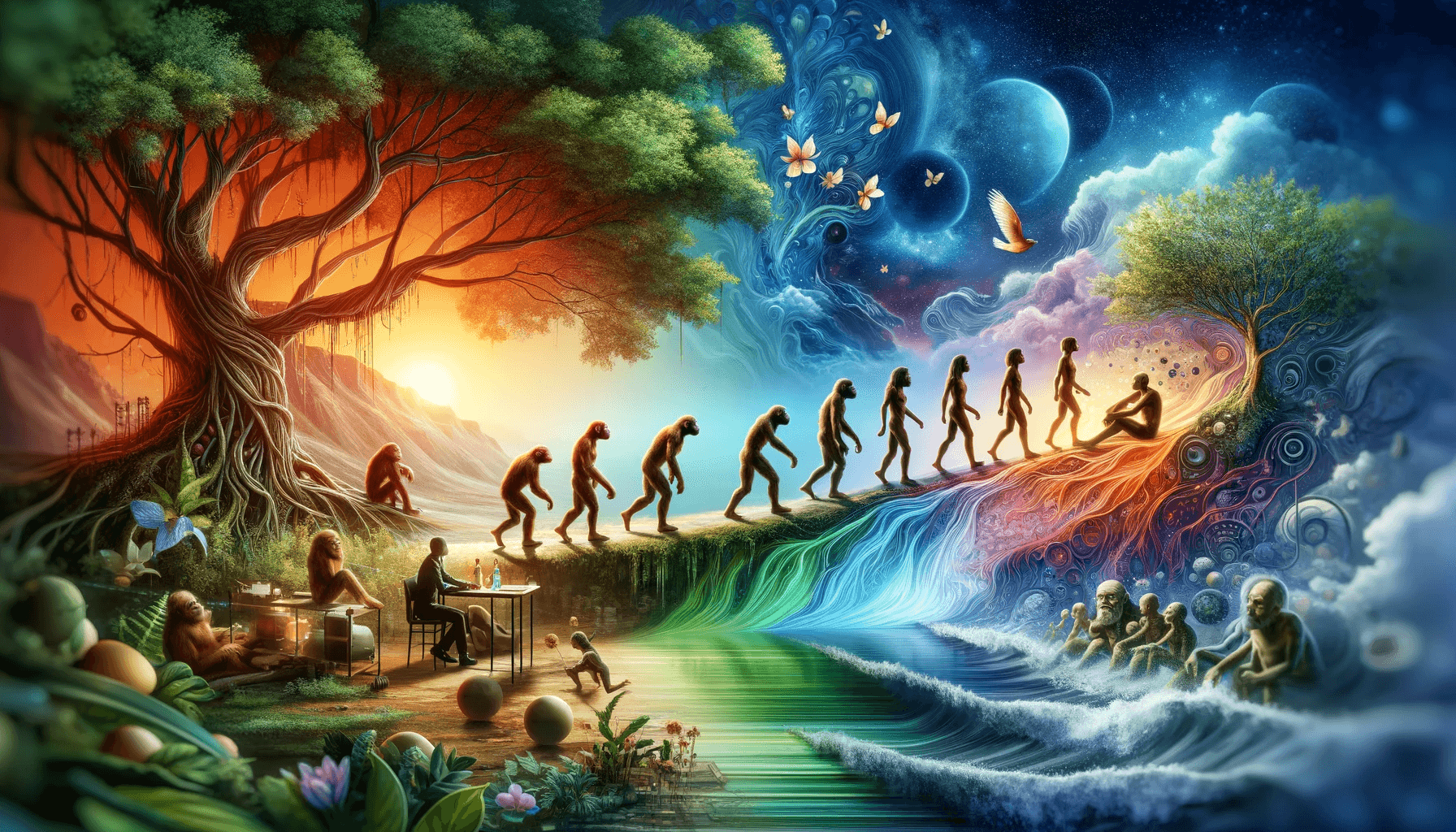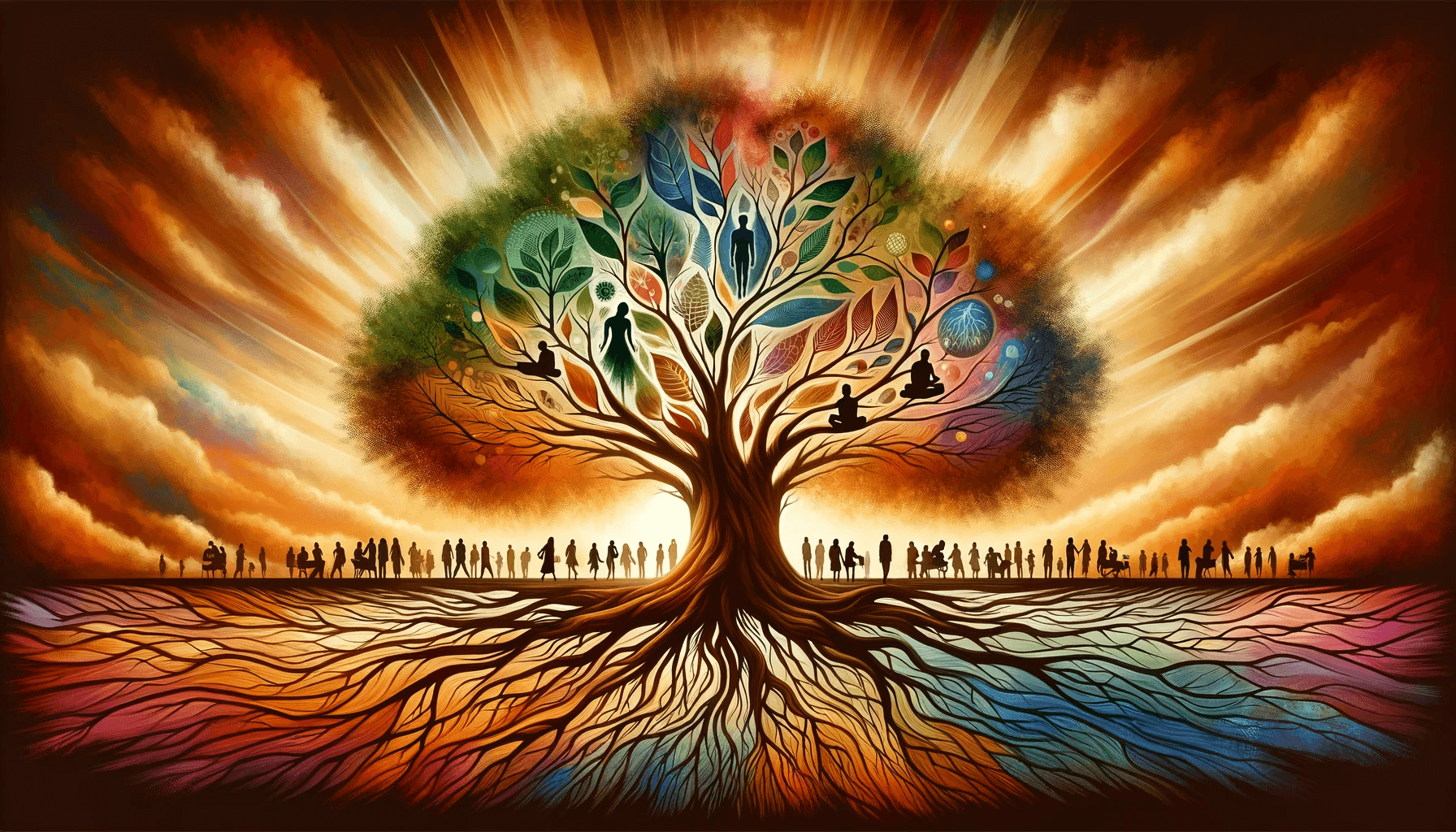Sponsor Einstein Success Code
Table of Contents
Introduction to Evolutionary Psychology
Evolutionary psychology is a fascinating field that aims to understand human behavior through the lens of evolution. It seeks to explain why we think, feel, and act as we do by examining the adaptive functions of our thoughts, emotions, and behaviors. By understanding the evolutionary roots of human behavior, we can gain insight into the complex interplay between biology and culture that shapes our lives.
The Principles of Evolutionary Psychology
Evolutionary psychology is grounded in several key principles. The principles of evolutionary psychology often focus on how psychological adaptations that evolved in the past contribute to contemporary human behavior. Here are some key principles:
- Adaptation and Natural Selection: Evolutionary psychology suggests that many human psychological traits are adaptive, meaning they have evolved because they are advantageous in surviving and reproducing.
- The Environment of Evolutionary Adaptedness (EEA) refers to the environment to which a particular evolved trait is adapted. The current environment might differ from the EEA, leading to certain behaviors or traits that may seem maladaptive in the modern context.
- Modularity of Mind: The idea that the human mind might be composed of innate, modular adaptations for specific evolutionary problems. Each module handles tasks like language processing, social interaction, or threat detection.
- Sexual Selection: This aspect of evolutionary theory focuses on how competition for mates and choice of mates influence the development of certain psychological traits and behaviors, such as aggression or courtship behaviors.
- Gene-Culture Coevolution: The interaction between genetic evolution and cultural developments. Some traits and behaviors may evolve because of natural selection, cultural influences, and vice versa.
- Life History Theory: This examines how individuals allocate resources to growth, reproduction, and survival across their lifespan. Evolutionary pressures influence different life strategies.
- Parental Investment and Kin Selection: These concepts focus on how evolutionary pressures shape parental behaviors, the extent of investment in offspring, and behaviors toward kin.
- Costly Signaling Theory: This theory suggests that certain behaviors or traits are signals of underlying genetic fitness, which can be important in mate selection.
It’s important to recognize that evolutionary psychology is a complex and sometimes controversial field, with ongoing debates about the extent to which evolutionary theories can explain human behavior. Additionally, it’s crucial to avoid simplistic or deterministic interpretations of evolutionary psychology, as many genetic and environmental factors influence human behavior.
The Influence of Evolution on Human Behavior
The influence of evolution on human behavior is a fascinating and complex topic central to evolutionary psychology. This field suggests that many aspects of human behavior can be understood as adaptations – that is, as traits or behaviors that evolved because they were advantageous in our ancestral environments. Here are some key ways in which evolution influences human behavior:
- Survival Mechanisms: Many basic human behaviors, such as fear responses to threats (like spiders or heights), can be seen as evolved survival mechanisms. These behaviors would have helped our ancestors avoid danger and survive in their environments.
- Mating and Reproductive Strategies: Evolutionary theory suggests that a significant amount of human social behavior is driven by mating and reproductive strategies. This includes behaviors related to mate selection, competition for mates, and parental investment. For instance, traits considered attractive in a mate may signal health and genetic fitness.
- Social Behaviors: Many social behaviors, such as altruism, group cooperation, and even aggression, can be interpreted through an evolutionary lens. For instance, altruism towards relatives can be understood through kin selection, where helping relatives indirectly helps one’s genes survive.
- Communication and Language: The development of language can be seen as an evolutionary adaptation that facilitated more complex social structures, improved coordination in groups, and the transmission of knowledge across generations.
- Cognitive Biases: Many cognitive biases, such as the tendency to notice and remember information that confirms our existing beliefs (confirmation bias), may have had evolutionary advantages. These biases could have helped our ancestors make quick, life-saving decisions with limited information.
- Cultural Evolution: Cultural evolution also influences human behavior, which interacts with genetic evolution. Cultural norms and values can shape behaviors, and these behaviors can, in turn, influence the direction of cultural evolution.
- Diet and Food Preferences: Our preferences for certain foods, such as high-fat and high-sugar foods, can be traced back to evolutionary times when such resources were scarce and highly valuable for survival.
- Risk-taking Behaviors: Behaviors like risk-taking may have evolved differently in males and females due to differing reproductive strategies and roles in the ancestral environment.
It’s important to note that while evolutionary theory provides a framework for understanding human behavior, it is not deterministic. A complex interplay of genetic, environmental, and cultural factors influences behaviors. Moreover, what may have been adaptive in an ancestral environment may not necessarily be adaptive in the modern world, leading to mismatches that can affect health and well-being.
Evolutionary Psychology and Parenting Behavior
Evolutionary psychology offers intriguing insights into parenting behavior, viewing it through the lens of evolutionary adaptations. The primary focus is on how parenting behaviors evolved to enhance offspring’s survival and reproductive success. Here are some key aspects of how evolutionary psychology interprets parenting behavior:
- Parental Investment Theory: This theory, developed by Robert Trivers, suggests that the amount of time, energy, and resources parents invest in each child is influenced by the potential reproductive benefits and costs associated with that investment. In species where offspring require significant care, as in humans, high parental investment is crucial for the survival and success of the offspring.
- Differential Parental Investment: Evolutionary psychology suggests that males and females might invest differently in offspring due to differences in the minimum parental investment required for each sex. For instance, in many species, females typically invest more due to pregnancy, nursing, and nurturing, influencing the roles and behaviors of mothers and fathers.
- Kin Selection and Altruism: Kin selection theory explains altruistic behavior toward offspring to ensure the survival of shared genes. This theory extends to wider family networks, suggesting that caregiving and supportive behaviors toward kin, like nieces, nephews, and grandchildren, also have evolutionary underpinnings.
- Attachment Theory: While not exclusively evolutionary, attachment theory aligns with the idea that secure attachment between a parent and child has evolved as a survival mechanism. A secure attachment ensures the child receives necessary care and protection, increasing chances of survival and later reproductive success.
- Variation in Parenting Strategies: Evolutionary psychology suggests that parenting strategies may vary depending on environmental factors, such as resource availability, environmental threats, and social structures. For instance, more protective and risk-averse parenting styles may evolve in environments where resources are scarce or threats are high.
- Parent-Offspring Conflict: This concept describes the evolutionary conflicts that can arise between the interests of parents and their offspring. For instance, weaning conflict arises when a parent’s interest in stopping nursing (potentially investing in other offspring) conflicts with a child’s interest in continuing to nurse.
- Cultural Influences: Cultural practices and norms around parenting also evolve and can interact with biological predispositions. For example, cultural norms can influence the age of weaning, approaches to discipline, and expectations for independence or interdependence.
- Life History Theory: This approach in evolutionary psychology examines how individuals allocate resources to growth, reproduction, and parenting across their lifespan. Parenting strategies may be influenced by the parent’s developmental history and environmental stability.
It’s important to note that while evolutionary psychology provides a framework for understanding general trends in parenting behavior, it does not account for all individual variations. Personal experiences, societal norms, and individual personalities also significantly shape parenting behavior. Additionally, these theories are not prescriptive but descriptive, explaining why certain patterns may exist rather than suggesting how parents should behave.
Evolutionary Psychology and Aggression
Evolutionary psychology offers a framework for understanding aggression by examining how this behavior may have been advantageous for survival and reproduction in our ancestral past. According to this perspective, aggression is not viewed as inherently good or bad but rather as a complex behavior that may have evolved because it offered certain benefits in specific contexts. Here are some key points on how evolutionary psychology interprets aggression:
- Resource Competition: Aggression can be understood as a strategy for competing for resources essential for survival and reproductive success. This includes tangible resources like food and territory and intangible ones like social status and access to mates.
- Mate Defense and Sexual Jealousy: Aggressive behaviors may have evolved as mechanisms to guard mates against rivals and ensure offspring’s paternity or maternity. This is often linked to sexual jealousy, which can trigger aggressive responses.
- Intrasexual Competition: Particularly in males, aggression can be a strategy for competing with others of the same sex for access to mates. The ability to intimidate or defeat rivals may have been a trait favored by natural selection.
- Protection and Altruism: Aggressive behavior can be a form of altruism, in an evolutionary sense, when used to protect kin. Defending family members, especially offspring, ensures the continuation of shared genes, a central concept in kin selection theory.
- Status and Social Dominance: Aggression can be a means to achieve or maintain a high social status. Individuals with higher status often have better access to resources and mates, which can lead to greater reproductive success.
- Environment and Contextual Factors: Evolutionary psychology suggests that aggression is more likely to be favored in certain environmental contexts. For instance, aggressive behaviors might be more advantageous in environments where resources are scarce and competition is high or where there is a high risk of mate poaching.
- Cost-Benefit Analysis: The expression of aggression is believed to involve a cost-benefit analysis, albeit often subconsciously. This means that individuals are more likely to exhibit aggression when the perceived benefits outweigh the potential costs, such as injury, loss of status, or social sanctions.
- Developmental Influences: The propensity for aggression may also be influenced by early life experiences. Harsh or unstable environments during development can lead to a higher propensity for aggression, as it might have been a successful survival strategy in ancestral times.
- Cultural and Individual Variations: While evolutionary psychology provides a general framework, it recognizes that cultural norms and individual experiences play a significant role in moderating aggressive behavior.
- Gender Differences: Evolutionary psychology often points to differences in the patterns and motivations for aggression between men and women, reflecting different evolutionary pressures and strategies.
It provides a lens to examine why such behavior might arise and how it can be understood in the context of human evolution. Modern social norms, laws, and ethical considerations are crucial in shaping how aggression is expressed and managed in contemporary society.
The Role of Evolutionary Psychology in Understanding Emotions
Evolutionary psychology provides a valuable framework for understanding emotions by exploring how they may have evolved as adaptive responses to environmental challenges faced by our ancestors. This perspective suggests that emotions are not arbitrary but have specific functions shaped by natural selection. Here’s how evolutionary psychology interprets various emotions:
- Fear and Anxiety: These emotions likely evolved as mechanisms for dealing with threats. Fear triggers a fight-or-flight response, which increases the chances of survival in dangerous situations. Anxiety may have evolved as a way to anticipate and prepare for potential threats.
- Anger: Anger can be seen as an emotion that evolved to deal with challenges to social status and personal well-being or to rectify injustice. It can motivate individuals to confront and resolve conflicts, defend resources, or protect themselves and their kin.
- Happiness and Pleasure: Positive emotions like happiness are thought to have evolved to reinforce behaviors beneficial for survival and reproduction, such as forming social bonds, finding a mate, or successfully acquiring resources.
- Sadness and Grief: Sadness may serve an adaptive purpose by signaling a need for social support and facilitating bonding and empathy from others. Grief, particularly in response to the loss of a close individual, may have evolved to reinforce social bonds and cooperation.
- Jealousy: This emotion can be viewed as an adaptive response to potential threats to valued social relationships, particularly in the context of mate guarding and parental investment.
- Disgust: Disgust likely evolved as a protection mechanism against contamination and disease. It steers individuals from harmful substances, unhygienic conditions, and risky behaviors.
- Love and Attachment: Emotions related to love and attachment, including maternal love, romantic love, and friendship, may have evolved to promote pair bonding, cooperative child-rearing, and strong social alliances.
- Guilt and Shame: These emotions can be seen as mechanisms that help maintain social cohesion and cooperation. They encourage adherence to social norms and deter behaviors that could damage social relationships.
- Empathy and Compassion: These emotions likely evolved to facilitate social bonding and cooperative behaviors within groups, enhancing group survival.
- Surprise and Curiosity: These emotions may have evolved to help individuals respond to novel situations, encouraging learning and adaptation to new environments or circumstances.
Cultural, environmental, and individual factors significantly influence how emotions are experienced and expressed. Moreover, the evolutionary perspectives on emotions are continuously refined as we gain more understanding of human psychology, biology, and social dynamics. The utility of these emotions in contemporary society may differ from their ancestral functions, underscoring the complexity of human emotional life.
Criticisms and Controversies Surrounding Evolutionary Psychology
While providing valuable insights into human behavior and psychology, evolutionary psychology has faced various criticisms and controversies. These criticisms generally revolve around methodological issues, the interpretation of data, and philosophical and ethical concerns. Some of the key criticisms and controversies include:
- Determinism and Reductionism: Critics argue that evolutionary psychology tends to oversimplify complex human behaviors by attributing them to evolutionary causes. This reductionist approach may ignore the influence of culture, socialization, and individual differences, leading to a deterministic view of human nature.
- Adaptationism: Some critics contend that evolutionary psychology overemphasizes the role of adaptation in shaping human behavior, sometimes interpreting every trait as an adaptation. This can lead to speculative and unfalsifiable explanations for complex social and psychological phenomena.
- Historical Narratives and Just-So Stories: Evolutionary psychology often relies on speculative narratives about human ancestral environments to explain current behaviors. These narratives, sometimes pejoratively called “just-so stories,” can be difficult or impossible to test empirically.
- Biological Basis of Social and Cultural Differences: The field has been criticized for potentially reinforcing stereotypes and social biases, particularly regarding gender, race, and social class. By suggesting that certain behaviors are deeply rooted in our biology, evolutionary psychology can be misused to justify inequality or discrimination.
- Generalizability of Findings: Much of the research in evolutionary psychology has been conducted with samples that are not representative of the global population (often Western, Educated, Industrialized, Rich, and Democratic – WEIRD). This raises questions about the generalizability of findings across different cultures and societies.
- Interdisciplinary Tensions: Evolutionary psychology sits at the intersection of psychology, biology, anthropology, and other disciplines. Its methods and interpretations sometimes clash with those of other fields, leading to debates over the best approaches to studying human behavior.
- Ethical and Philosophical Implications: The interpretations and applications of evolutionary psychology have ethical and philosophical implications. For instance, explaining certain harmful or unethical behaviors as evolutionary adaptations can be problematic, as it might imply that these behaviors are natural or unavoidable.
- Testability and Falsifiability: Some critics point out that many evolutionary psychological hypotheses are difficult to test rigorously. This challenge relates to the problem of reconstructing ancestral environments and determining the selective pressures that shaped human evolution.
- Plasticity and Environment Interaction: Critics argue that evolutionary psychology sometimes underestimates the role of environmental factors and the plasticity of human behavior in response to different environmental contexts.
- Evolutionary Mismatch: The concept of evolutionary mismatch – that certain modern behaviors are maladaptive because they evolved in very different ancestral environments – is both a strength and a point of controversy. It can be challenging to determine which behaviors are truly mismatches and which are adaptive responses to current conditions.
Despite these criticisms, evolutionary psychology remains a significant and influential field. Many researchers within the field are aware of these challenges and work to address them through more rigorous methodologies, interdisciplinary collaboration, and a nuanced understanding of the interplay between biology, environment, and culture. The field contributes to a broader understanding of human behavior. Still, it is essential to interpret its findings cautiously, considering the complexity of human nature and the influence of numerous factors on behavior and psychology.
Applications of Evolutionary Psychology in Modern Society
Despite its controversies and complexities, evolutionary psychology offers valuable perspectives that can be applied in various domains of modern society. Understanding the evolutionary underpinnings of human behavior and cognition allows us to gain insights into contemporary issues, enhance various practices, and address societal challenges. Some of the key applications of evolutionary psychology in modern society include:
- Mental Health and Therapy: Understanding the evolutionary roots of certain psychological traits and behaviors can inform therapeutic approaches. For instance, recognizing that anxiety might have evolved as a survival mechanism can help in developing more effective treatments for anxiety disorders.
- Education and Child Development: Insights from evolutionary psychology can inform educational practices and parenting strategies. Understanding the evolutionary basis for children’s learning and play behaviors can guide more effective, developmentally appropriate education systems.
- Health and Lifestyle: Knowledge about our evolutionary past can shed light on modern health issues, such as the prevalence of obesity, stress, and chronic diseases. This perspective suggests that many modern ailments arise from a mismatch between our evolved tendencies (like craving high-calorie foods) and the modern environment.
- Workplace and Organizational Behavior: Evolutionary psychology can provide insights into workplace dynamics, leadership, cooperation, and competition. Understanding the evolutionary basis of social hierarchies and group behaviors can improve organizational management and teamwork.
- Consumer Behavior and Marketing: Evolutionary principles can be applied to understand consumer preferences and decision-making processes. This knowledge can be used in marketing and advertising to appeal to evolved psychological tendencies.
- Social Policy and Conflict Resolution: Insights into the evolutionary aspects of aggression, cooperation, and altruism can inform policies to reduce conflict and enhance social cohesion. Understanding the roots of social and intergroup conflicts can aid in developing more effective peacekeeping and conflict resolution strategies.
- Environmental Conservation: Evolutionary psychology can help explain human attitudes towards the environment and natural resources. This understanding can inform strategies for promoting sustainable behaviors and addressing environmental challenges.
- Legal and Criminal Justice Systems: Understanding the evolutionary aspects of behaviors such as aggression, cheating, and cooperation can inform legal theories and practices. This includes insights into criminal behavior, justice, and the social and psychological factors influencing legal decisions.
- Cultural Studies and Anthropology: Evolutionary psychology provides a framework for understanding cultural evolution and the interplay between biological evolution and cultural development. This can enhance our understanding of cultural diversity and social norms.
- Relationships and Sexual Behavior: Applying evolutionary theory to understand mating strategies, attraction, and partner selection can provide insights into personal relationships and sexual health.
Oversimplification or misuse of evolutionary explanations, particularly without considering the complex interplay of biological, environmental, and cultural factors, can lead to erroneous conclusions and potentially harmful practices. Additionally, evolutionary explanations should not be used to justify harmful or unethical behaviors. Instead, they should be considered part of a broader effort to understand the diverse influences on human behavior and society.
Conclusion: The Importance of Understanding Evolutionary Psychology in Explaining Human Behavior
Evolutionary psychology provides a valuable framework for understanding the complex interplay between biology and culture that shapes human behavior. By recognizing the evolutionary roots of our thoughts, emotions, and behaviors, we can better understand why we behave the way we do. This knowledge has practical applications in various domains, from relationships and parenting to marketing and public policy. By embracing evolutionary psychology, we can unlock new insights into human behavior and foster a more comprehensive understanding of ourselves and the world around us.
CTA: If you are interested in learning more about the fascinating field of evolutionary psychology and its applications in understanding human behavior, consider exploring further through reputable academic journals and books written by experts. By delving into the research and theories, you can better appreciate the intricate interplay between biology, culture, and behavior.




